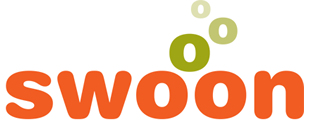Whether you’re a candidate or an employer, you’re no stranger to the basics of preparing for a job interview. Of course, you’re going to research the company or review the candidate’s resume. And you’re undoubtedly going to show up on time, dress appropriately, and practice common questions. That’s a given.
But once you’ve mastered the fundamentals of interview preparation, it’s time to take your skills to the next level. In this blog post, we’ll delve deeper into the intricacies of the interview process, offering advanced tips for both candidates and interviewers. Whether you’re aiming to stand out as a candidate or enhance your interviewing techniques, these insights will help you make a lasting impression in your next interview.
For Candidates:
1. Craft Compelling Stories:
- Go beyond simple responses and craft compelling stories that highlight your achievements and problem-solving abilities. Structure your answers using the STAR method (Situation, Task, Action, Result) to provide a clear and impactful narrative.
- For example, think about specific situations where you faced a challenge: a project that was on a tight budget, an issue that required an urgent solution, or a difficult conversation with an underperforming team member. How did you handle it? What actions did you take and what was the result?
2. Showcase Adaptability:
- Demonstrate your ability to adapt to different situations by discussing how you’ve successfully navigated changes in the past. This can include adapting to new technologies, working with diverse teams, or taking on unexpected challenges.
- Employers want to know that you aren’t expecting perfect working conditions all of the time. They want to know that you can be resourceful and open to challenges that may arise, so highlighting those examples is important.
3. Highlight Continuous Learning:
- Showcase your commitment to continuous learning by discussing relevant courses, certifications, or workshops you’ve completed. This reflects your dedication to self-improvement and underscores your proactive approach to staying abreast of industry trends.
4. Discuss Your Problem-Solving Process:
- When faced with a challenging scenario, articulate your problem-solving process. Break down the steps you take to analyze a problem, identify solutions, and implement effective resolutions. This demonstrates your analytical skills and strategic thinking.
5. Address Potential Concerns Proactively:
- If you anticipate potential concerns about your candidacy (such as employment gaps or a shift in career focus), address them proactively during the interview. Provide context and emphasize how these experiences have contributed to your overall skill set.
- For instance, if you have an employment gap, emphasize what you gained or accomplished during the gap. This could include acquiring new skills, volunteering, freelancing, or pursuing further education. Highlight any relevant experiences that can demonstrate your continued professional development.
- Be sure to express your enthusiasm for returning to work and contributing to a new organization. Emphasize your commitment to the role and how the experiences during the gap have prepared you for the position.
For Interviewers:
1. Utilize Behavioral Interviewing Techniques:
- Dive deeper into candidates’ past experiences using behavioral interviewing techniques. Ask questions that require them to provide specific examples of how they’ve demonstrated key competencies in previous roles.
- For example, asking questions about their conflict resolution style, adaptability, time management, leadership, and initiative can get at the heart of how they behave in a work environment.
2. Evaluate Cultural Fit:
- Assess not only the candidate’s qualifications but also their cultural fit within the organization. Inquire about their work preferences, communication styles, and collaboration experiences to ensure alignment with your company culture. Here are a few examples:
- “Our company places a strong emphasis on [specific values]. Can you share an experience from your past roles that reflects a commitment to these values?”
- “If you were in a leadership role, how would you motivate your team to achieve common goals while maintaining a positive and inclusive work environment?”
- “Describe a challenging situation at work that required you to uphold our company values. How did you navigate the challenge while staying true to these values?”
- “Describe a project where you had to collaborate closely with colleagues. How did you contribute to the team’s success, and how do you prefer to work in a team environment?”
3. Simulate Realistic Scenarios:
- Create scenarios or case studies that simulate real challenges the candidate may encounter in the role. This allows you to assess their problem-solving abilities and how they approach complex situations.
4. Provide Insight into Company Challenges:
- Offer candidates a glimpse into current challenges or projects the company is facing. This not only demonstrates transparency but also allows candidates to showcase how their skills can contribute to overcoming these challenges.
5. Solicit Feedback on the Interview Process:
- After the interview, seek feedback from candidates about their experience. This information can be valuable for refining your interview process and creating a positive candidate journey, ultimately enhancing your employer brand. Here are a few questions to consider including:
- “How would you describe your overall experience with our interview process?”
- “Were there any aspects of the interview process that stood out to you, either positively or negatively?”
- “Did you feel the interviewers allowed you ample opportunity to showcase your skills and experience?”
- “Did you feel engaged and valued throughout the interview process?”
- “Based on your interactions with our team members, how would you describe our company culture?”
- “On a scale of 1 to 10, how likely are you to recommend our company as a potential employer based on your interview experience?”
You can differentiate yourself as a candidate or interviewer by going beyond the basics in your interview approach. These advanced tips aim to elevate the interview experience, providing a more thorough understanding of each party’s capabilities and ensuring the best possible match between candidates and companies. As you embark on your next interview, remember to embrace these strategies to leave a lasting, positive impression. Good luck!

